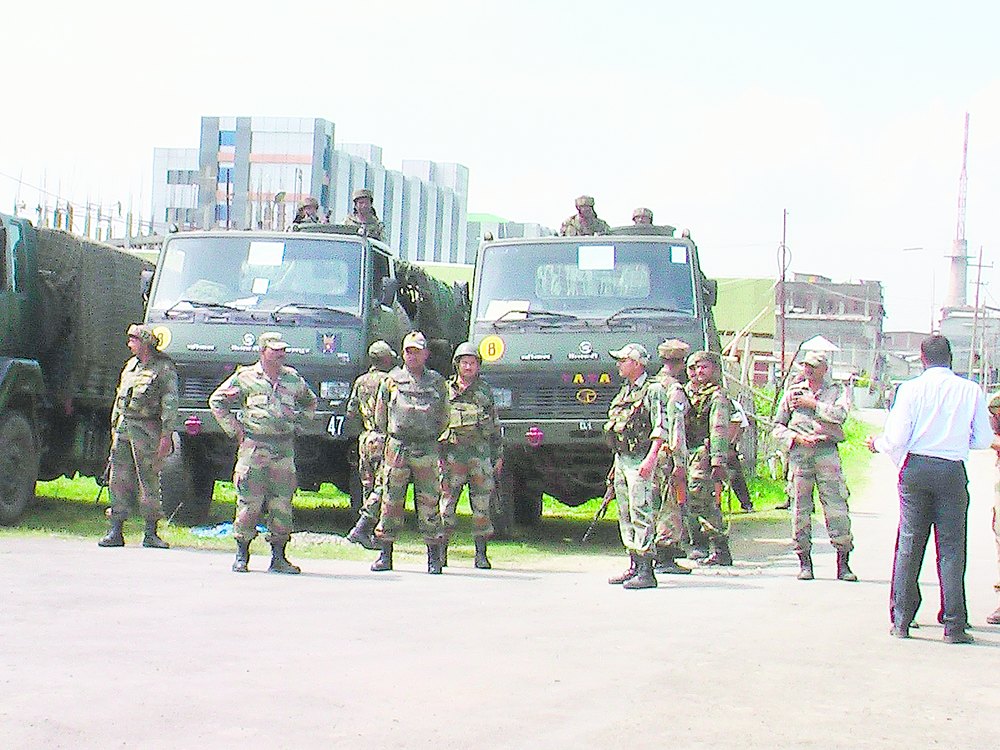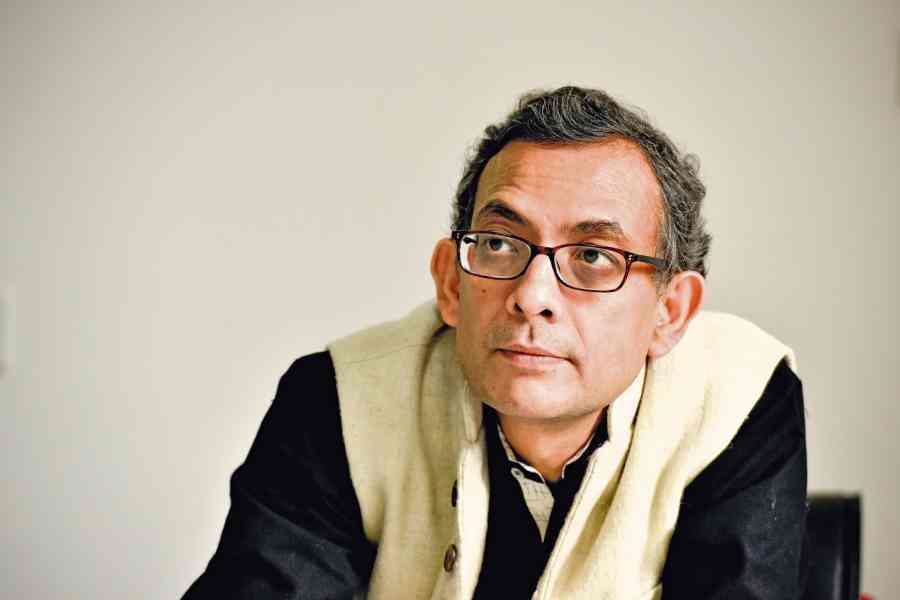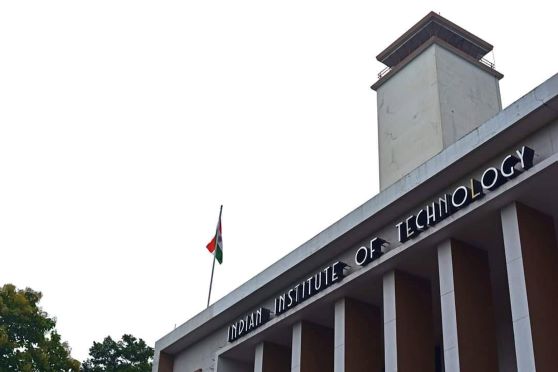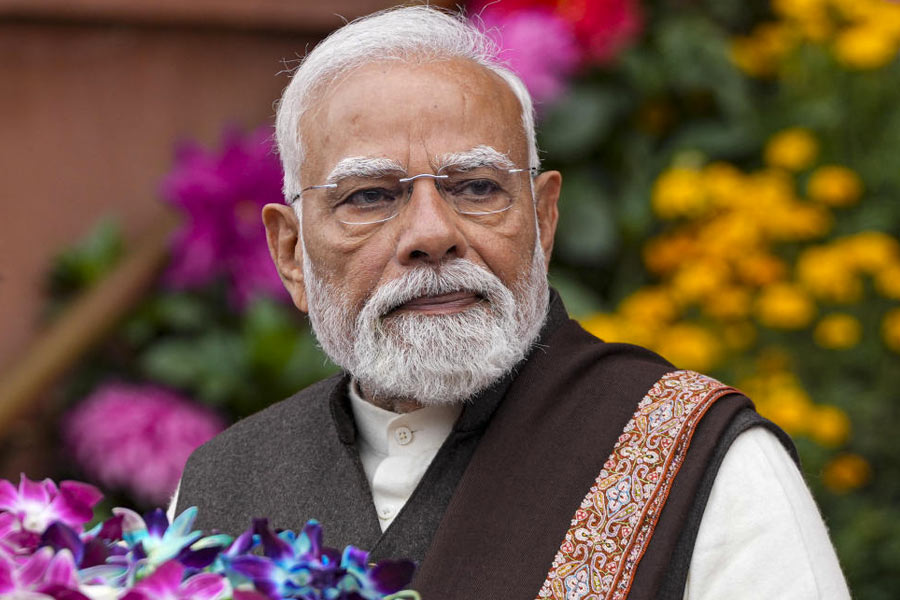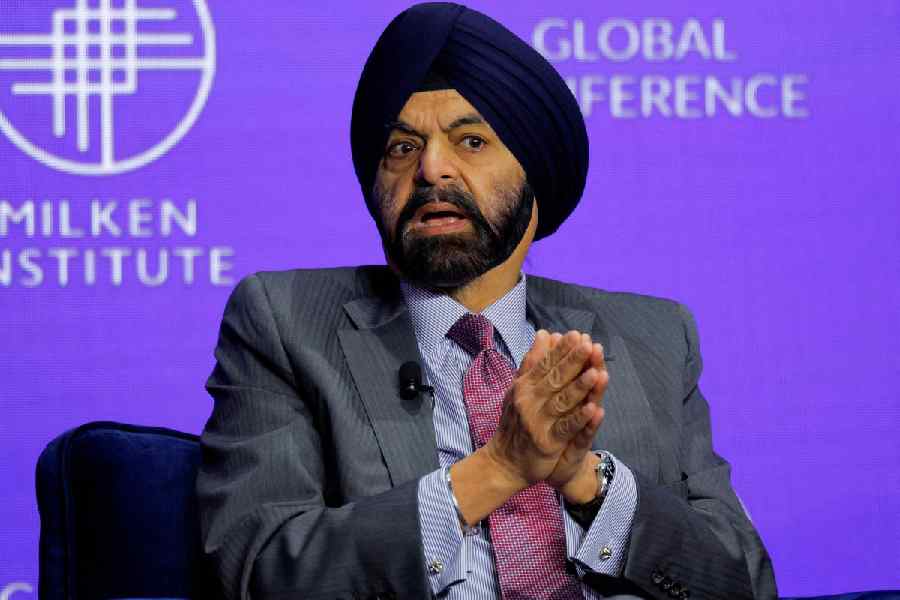
June 5: Manipur human rights crusader Irom Chanu Sharmila's fast unto death since 2000 to get the Armed Forces (Special Powers) Act, 1958, repealed is unlikely to end anytime soon.
The ambush in Chandel district of Manipur which left 18 personnel of the 6 Dogras dead and 11 injured yesterday is being seen as a huge setback to those who want the "draconian" law withdrawn from the region.
Security experts believe the Tripura cabinet's recommendation to get the AFSPA withdrawn and the Centre's partial rollback of the law within weeks of its extension in Arunachal Pradesh, both in May, had fuelled hopes of the law being on its way out or areas under its jurisdiction shrinking further. However, the ambush has put paid to such hopes.
Brigadier (retired) Ranjit Borthakur, dwelling on the growing demand for withdrawal of the act, told The Telegraph that the ambush has only made the case for the continuation of it strong. "It is definitely a setback to intellectuals and organisations trying to get the AFSPA repealed. The defence and home ministries have now got a strong point to argue in favour of the act. Personally, I feel the authorities should take a holistic view while dealing with the situation," Borthakur said.
Manipur deputy chief minister Gaikhangam, who also holds the state home portfolio in a state that has for many decades now struggled against the AFSPA and one that has seen some of the worst cases of human rights abuse under the act, said while the government welcomed the peace that had prevailed in recent days in Manipur, the sudden attack yesterday and "such militant activity" would not help get AFSPA repealed.
Human rights workers, though, held on to hopes that an end to the act could be in the offing.
Kshtrimayum Onil, lead co-ordinator of Reach Out, an NGO in Manipur, told The Telegraph that yesterday's incident was a part of a political conflict.
"The AFSPA is discriminatory according to the UN and different international organisations. The army act was imposed in the state before militancy plagued it. The conflict can be brought to a solution only by means of dialogue. If dialogue fails, there is need for involvement of a third party," he said.
Sharmila had launched her fast against the AFSPA following the killing of 10 people in an encounter by the Assam Rifles at Malom in Manipur on November 2, 2000.
The AFSPA, which gives unfettered powers to the security personnel during counter-insurgency operations, is in force in Manipur, Tripura, Assam, Arunachal Pradesh, Nagaland, and a 20-km belt inside Meghalaya along its border with Assam, besides Jammu and Kashmir. Under the act, security personnel can shoot at sight, arrest people without a warrant and carry out searches without hindrance. It insulates them from legal tangles that may rise from action taken during counter-insurgency operations.
"Repeal AFSPA, remove army or retain army, retain AFSPA. There can be no middle ground. With the emergence of the umbrella front of United Liberation Front of Western South East Asia, the insurgency situation will only get more dangerous and complicated," said an army official in Guwahati.
Across the region, the act has been blamed for security forces often acting with impunity. The act, it is widely believed, ploughed the ground for a large number of cases of human rights abuse by security forces in the name of containing militancy.

